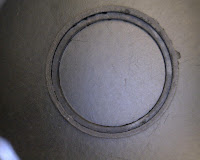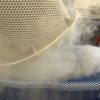Nitrofreeze® Proof of Concept Case Study- Deflashing Silicone Our Cryogenic Deflashing and Deburring process adds value while reducing costs to customers by eliminating the need for hand trimming. Highlighted below is…
Read More
Cryogenic Deflashing offers a modern approach to remove flash from your parts created during the molding process. The cryogenic deflashing process removes flash from parts via tumbling and blasting of…
Read More
The Cryogenic Institute of New England, Inc. provides its proprietary Nitrofreeze Cryogenic Deflashing Service to customers across the United States. Our new facility located in Worcester, Massachusetts has boosted capacity…
Read More

Cryogenic deflashing has existed for several decades to serve the rubber and silicone molding industries. For several decades this process has helped remove residual flash left over by the molding…
Read More
Nitrofreeze provides plastic flash removal services for molded plastic parts. Any molder knows that as mold tools begin to age, flash will begin to form. Once flash begins to develop…
Read More
Every rubber molder knows that as mold tooling wears, mold flash can become an issue. As more parts are produced these wear issues become more apparent. The next thing you know…
Read More
Since 2002, the Cryogenic Institute of New England, Inc. has provided cryogenic deflashing and cryogenic deburring services. We provide deflashing and deburring solutions for manufacturers of plastic, rubber and…
Read More
As of October 13, 2009, we are an International Traffic in Arms Regulations (ITAR) registered company. We are proud to announce the U.S. Department of State, Bureau of Political-Military Affairs…
Read More

In just a few weeks, the Cryogenic Institute of New England, Inc. will be exhibiting at the MassPlastics 2009 tradeshow in Fitchburg, MA. The MassPlastics show will start Wednesday, October…
Read More
In these interesting economic times, it is hard to get the funding to replace molds and their associated tooling. It is understandable for companies to replace their molds as it…
Read More





